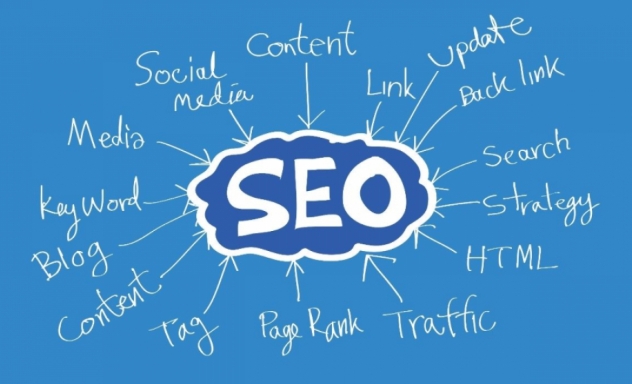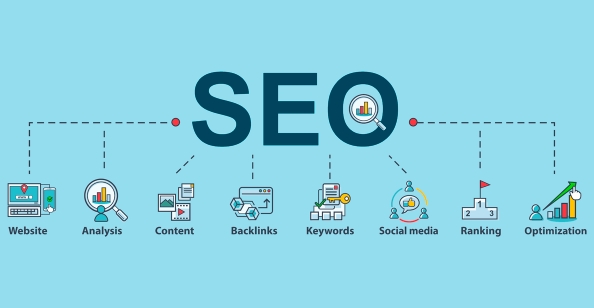What is the difference between on-page and off-page Google SEO?
Jul 01, 2025 am 12:29 AMGoogle SEO is divided into two core categories: On-page SEO and Off-page SEO. The former focuses on internal optimization of the website, including content quality, keyword layout, meta tags, URL structure and internal links; the latter focuses on external authority construction, mainly through obtaining high-quality external links. For example, optimizing article titles, keywords and internal links in travel blogs belongs to the On-page strategy, while obtaining recommended links from other websites is the key to Off-page. A common misunderstanding is to only pay attention to one party and ignore the other party. In fact, the two need to be carried out in concert: On-page is controllable and effective quickly, Off-page needs to be accumulated for a long time, and only by taking into account can the search ranking be comprehensively improved.

Google SEO boils down to two main categories: on-page and off-page. While both are essential for improving your website's visibility in search results, they focus on different aspects of optimization.

On-Page SEO – Controlling What's on Your Site

This is all about optimizing the content and structure directly on your website. You have full control here, which makes it a good starting point for most SEO efforts.
Key elements include:

- Content quality : Writing clear, helpful, and original content that answers users' questions.
- Keyword usage : Placing relevant keywords naturally in titles, headings, and throughout the text.
- Meta tags : Crafting descriptive title tags and meta descriptions that encourage clicks.
- URL structure : Keeping URLs short, readable, and keyword-friendly.
- Internal linking : Connecting related pages on your site to help users (and Google) navigate better.
For example, if you run a travel blog and write an article titled “Top 10 Things to Do in Tokyo,” using the right keywords, adding internal links to related posts like “Best Hotels in Tokyo,” and writing a compelling meta description can all boost your on-page SEO.
Off-Page SEO – Building Authority Beyond Your Site
This refers to actions taken outside your website to influence your search rankings. The biggest factor here is backlinks — when other websites link to yours.
Why does this matter? Google sees backlinks like votes of confidence. If reputable sites link to yours, it signals that your content is trustworthy and valuable.
Common off-page strategies include:
- Earning backlinks from high-quality websites
- Guest posting on industry-related blogs
- Social media sharing (not a direct ranking factor but helps visibility)
- Brand mentions without links can also help build awareness
One thing people often overlook: not all backlinks are equal. A single link from a respected site in your niche can be more powerful than dozens from unrelated or low-quality sites.
What Most People Miss
A common mistake is focusing only on one side of SEO. Some spend too much time tweaking their own site (on-page) without trying to get external links. Others chase backlinks aggressively but ignore basic on-site optimization like page speed or mobile-friendliness.
Also, while on-page SEO can be completed and updated quickly, off-page takes time and consistent effort. It's not just about getting links — it's about building relationships and creating shared content.
So, the real difference is simple: on-page is what you do to your site, off-page is what others (and you) do around your site.
Basically that's it.
The above is the detailed content of What is the difference between on-page and off-page Google SEO?. For more information, please follow other related articles on the PHP Chinese website!

Hot AI Tools

Undress AI Tool
Undress images for free

Undresser.AI Undress
AI-powered app for creating realistic nude photos

AI Clothes Remover
Online AI tool for removing clothes from photos.

Clothoff.io
AI clothes remover

Video Face Swap
Swap faces in any video effortlessly with our completely free AI face swap tool!

Hot Article

Hot Tools

Notepad++7.3.1
Easy-to-use and free code editor

SublimeText3 Chinese version
Chinese version, very easy to use

Zend Studio 13.0.1
Powerful PHP integrated development environment

Dreamweaver CS6
Visual web development tools

SublimeText3 Mac version
God-level code editing software (SublimeText3)

Hot Topics
 How to protect deep work time and retain focus as an SEO
Jun 19, 2025 am 10:07 AM
How to protect deep work time and retain focus as an SEO
Jun 19, 2025 am 10:07 AM
For any SEO professional, staying focused and productive can be a challenge.With constant algorithm updates, changing trends and a barrage of emails and notifications, it can feel like you’re always playing catch-up.That’s where deep work sessions co
 Google AI Overviews, clicks and traffic impact: Unraveling the mystery
Jun 22, 2025 am 09:42 AM
Google AI Overviews, clicks and traffic impact: Unraveling the mystery
Jun 22, 2025 am 09:42 AM
Google started including AI Overviews (AIO) in U.S. search results on May 14. While Google has made vague references to the fact that links within AIO may experience higher click-through rates (CTRs), it remains unclear when directly questioned about
 WordPress 6.5 gains lastmod date for sitemaps files
Jun 23, 2025 am 09:42 AM
WordPress 6.5 gains lastmod date for sitemaps files
Jun 23, 2025 am 09:42 AM
WordPress version 6.5 now includes support for the lastmod element in sitemap files, which can help search engines identify new or updated content. This enhancement may improve crawl efficiency and reduce server load.Lastmod. The lastmod element can
 Rethinking your keyword strategy: Why optimizing for search intent matters
Jun 20, 2025 am 10:20 AM
Rethinking your keyword strategy: Why optimizing for search intent matters
Jun 20, 2025 am 10:20 AM
Search engines continue to evolve, but SEO strategies have failed to keep up. For years, we have relied on keyword research to choose specific searches to target. However, keyword research often prioritizes the wrong goals. Executed well, keyw
 Reminder: New Google Search reputation abuse policy starts soon
Jun 28, 2025 am 10:22 AM
Reminder: New Google Search reputation abuse policy starts soon
Jun 28, 2025 am 10:22 AM
Google’s new Search spam policy surrounding reputation abuse – a tactic often called “parasite SEO” by SEO professionals – will go into effect “after May 5,” as confirmed by Google. May 5 falls on this Sunday.This wasn’t unexpected. Back in March, Go
 SCAMPER your way to better SEO and content marketing ideas
Jun 18, 2025 am 09:47 AM
SCAMPER your way to better SEO and content marketing ideas
Jun 18, 2025 am 09:47 AM
There is a lot of content out there. And guess what? 99% of it is terrible. Then, there is that 1% of content – the really good to absolutely phenomenal stuff. Sometimes, that is hot news, like the recent Google Search leak, but there are als
 Google is not about blue links, says ex-CEO Eric Schmidt
Jun 27, 2025 am 09:25 AM
Google is not about blue links, says ex-CEO Eric Schmidt
Jun 27, 2025 am 09:25 AM
“Google is not about blue links. It’s about organizing the world’s information,” said former executive chairman and CEO of Google Eric Schmidt during a recent appearance on CNBC.When asked about the “blue link economy” and all the brands and business
 SEO pros and cons of HubSpot vs. WordPress vs. Webflow
Jun 17, 2025 am 11:58 AM
SEO pros and cons of HubSpot vs. WordPress vs. Webflow
Jun 17, 2025 am 11:58 AM
I get asked all the time which web platform someone should use. The main options are HubSpot, WordPress and Webflow. Answer the same question a few times, and it’s probably worth spelling out for the masses.Before I explain my approach to answering t






